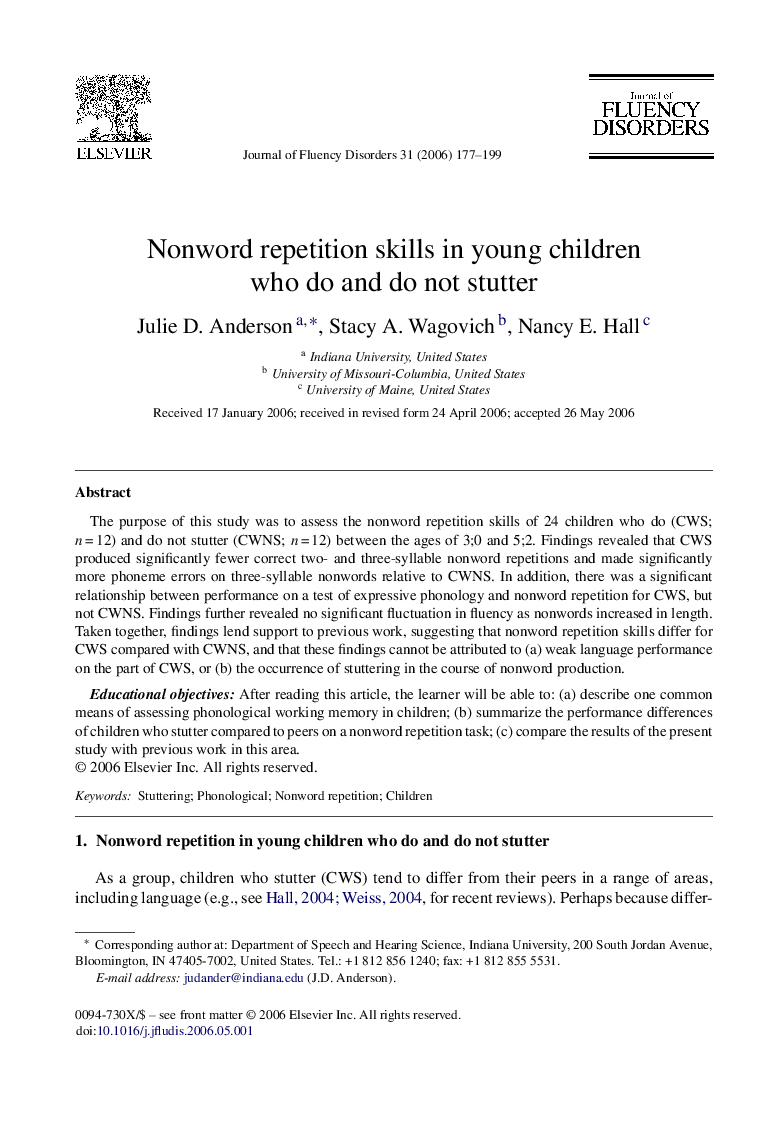| Article ID | Journal | Published Year | Pages | File Type |
|---|---|---|---|---|
| 911664 | Journal of Fluency Disorders | 2006 | 23 Pages |
The purpose of this study was to assess the nonword repetition skills of 24 children who do (CWS; n = 12) and do not stutter (CWNS; n = 12) between the ages of 3;0 and 5;2. Findings revealed that CWS produced significantly fewer correct two- and three-syllable nonword repetitions and made significantly more phoneme errors on three-syllable nonwords relative to CWNS. In addition, there was a significant relationship between performance on a test of expressive phonology and nonword repetition for CWS, but not CWNS. Findings further revealed no significant fluctuation in fluency as nonwords increased in length. Taken together, findings lend support to previous work, suggesting that nonword repetition skills differ for CWS compared with CWNS, and that these findings cannot be attributed to (a) weak language performance on the part of CWS, or (b) the occurrence of stuttering in the course of nonword production.Educational objectives: After reading this article, the learner will be able to: (a) describe one common means of assessing phonological working memory in children; (b) summarize the performance differences of children who stutter compared to peers on a nonword repetition task; (c) compare the results of the present study with previous work in this area.
